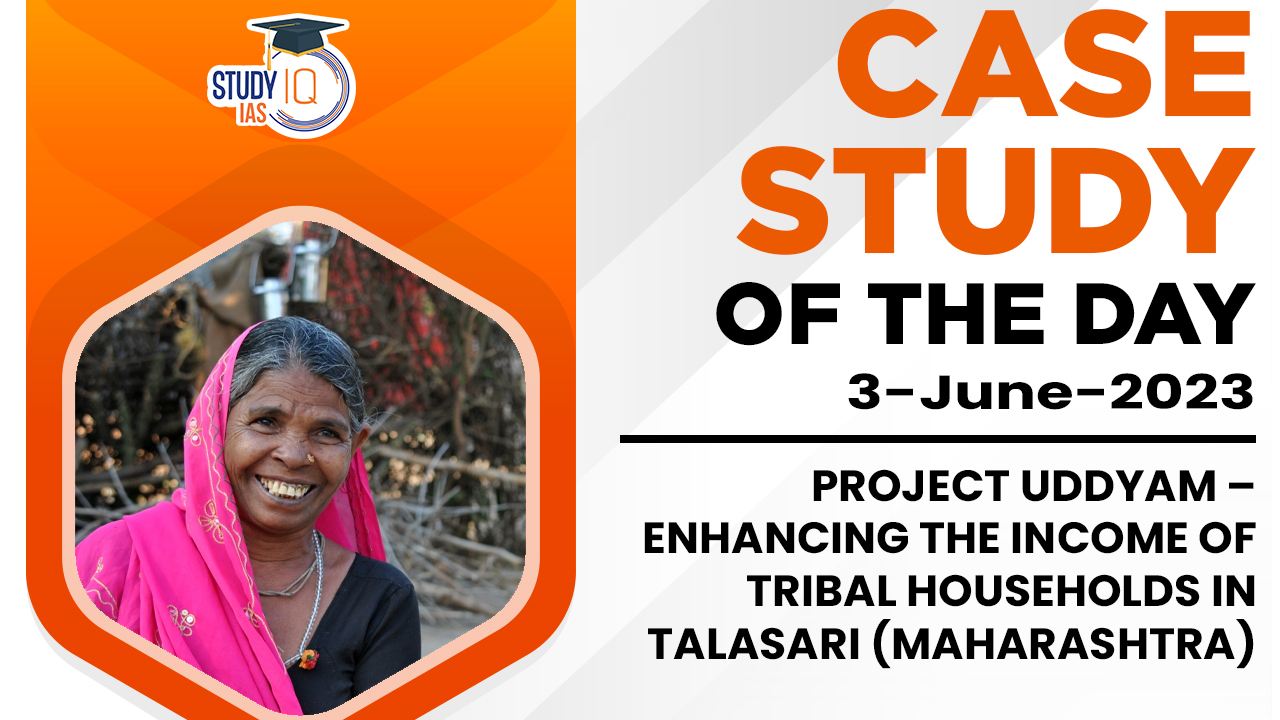Table of Contents
Introduction
- Project Uddyam was launched in collaboration with the government, NGOs, and local stakeholders to address these issues and improve the income levels of tribal households.
- The project aimed to provide sustainable livelihood options, enhance skills, and create avenues for self-employment and entrepreneurship.
Objectives
- To enhance the income and economic well-being of tribal households in Talasari.
- To provide skill development training and capacity-building programs.
- To encourage entrepreneurship and facilitate access to credit and financial services.
- To establish market linkages and promote the marketing of tribal products.
- To promote sustainable practices and conservation of natural resources.
Strategies and Implementation
- Community Engagement: The project began with extensive community consultations to understand the needs, aspirations, and challenges of the tribal households. Local leaders, tribal representatives, and community-based organizations were actively involved in the planning and implementation process.
- Skill Development: Training modules were developed in various sectors such as agriculture, animal husbandry, handicrafts, tourism, and non-timber forest produce. Skill development centers were established in collaboration with local institutes and experts to provide hands-on training and capacity building.
- Entrepreneurship Promotion: To foster entrepreneurship, the project facilitated access to credit and financial services through partnerships with banks and microfinance institutions.
- Market Linkages: The project aimed to connect tribal producers with potential buyers and markets. It involved organizing exhibitions, trade fairs, and marketing events to showcase tribal products. Additionally, efforts were made to establish tie-ups with e-commerce platforms, retail chains, and government procurement agencies.
- Sustainable Practices: Training programs on eco-friendly farming techniques, forest conservation, and waste management were conducted to promote sustainable livelihood practices among the tribal households.
Impact and Results
- Economic Empowerment: Project Uddyam successfully improved the income levels of tribal households in Talasari. Many households experienced a significant increase in their earnings through the adoption of new skills and entrepreneurial ventures. The project helped reduce poverty and improve the overall standard of living for the targeted communities.
- Skill Development: Numerous tribal individuals received skill training, enabling them to find employment opportunities in various sectors. The acquired skills helped them secure better-paying jobs, start their own enterprises, or engage in income-generating activities that were previously unavailable to them.
- Entrepreneurship and Market Access: Several micro-enterprises were established, offering products and services such as handicrafts, organic produce, and tourism experiences. Market linkages facilitated by the project enabled these entrepreneurs to access larger markets, resulting in increased sales and profitability.
- Environmental Sustainability: The project helped in natural resource conservation, reduced reliance on harmful agricultural practices, and enhanced the overall ecological balance in the region.
Conclusion
- Project Uddyam exemplifies an effective approach to enhancing the income of tribal households by focusing on skill development, entrepreneurship promotion, and market linkages.
- The sustainable practices and capacity-building initiatives implemented as part of the project contribute to the long-term development and empowerment of the tribal households, enabling them to achieve self-reliance and economic independence.


 Fiscal Slippage, Causes and Implications
Fiscal Slippage, Causes and Implications
 Serious Fraud Investigation Office (SFIO...
Serious Fraud Investigation Office (SFIO...
 Article 142 of Indian Constitution, Sign...
Article 142 of Indian Constitution, Sign...





















